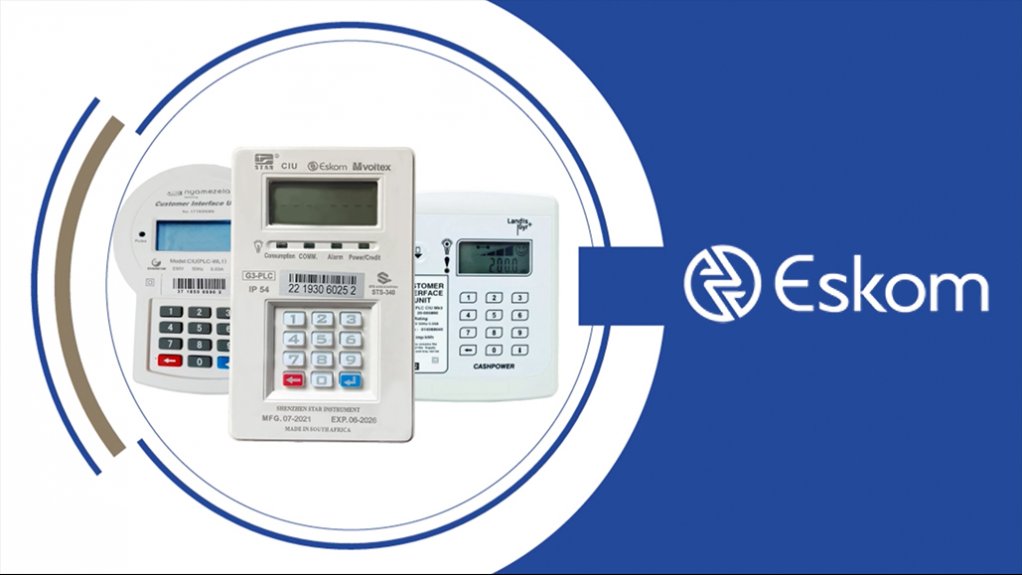Eskom insists its systems and strategies are in place to facilitate the seamless operation of the 6.8-million prepaid meters within its distribution areas after November 24 next year – the date by which the meters will no longer be able to accept electricity tokens unless they have been recoded to do so.
All Standard Transfer Specification (STS) meters globally, including those in municipal distribution areas in South Africa, are subject to the cut-off deadline. The reason being that the Token Identifier, or TID, range, which is set against a base date of January 1, 1993, will be exhausted in November 2024 unless reset.
In the absence of recoding, the STS-compliant meters will stop accepting credit tokens.
Eskom’s Velaphi Ntuli says all the necessary back-end investments have been made to allow for the implementation of a Key Revision Number Rollover project and that addition staff have been recruited to ensure the rollover deadline is met.
He did not provide an investment amount, saying that the figure was being finalised, including the budget required to communicate the changes to affected electricity consumers using traditional media, social media, as well as Eskom’s Alfred chatbot.
The utility is pursuing a free, do-it-yourself (DIY) implementation process, whereby Eskom’s normal vending agents will issue affected prepaid consumers with two 20-digit key-change tokens with their normal credit token.
The consumer is then expected to punch in the numbers on the key-change tokens to recode their existing meter, after which they will be able to load the meter with credit as normal.
Eskom insists that the credit in the meter at the time of reset will be unaffected by the recoding.
The key-change tokens will be available only from physical vending agents, as online vendors are not able to generate key-change tokens.
The DIY approach means that the recoding is not reliant on contractors or installers and Eskom warns that anyone posing as an Eskom employee claiming to require access to a property should be turned away and reported to the South African Police Service.
Once the meter is recoded customers will be able to use their preferred vending channel, including online platforms.
Eskom’s Portia Papu reports that the first phase of the project, which was designed to clear all the initial teething problems, was completed in August and September, with Riverside, in Gauteng, selected as the pilot site.
The second ramp-up phase is currently under way and more than 670 000 meters have been reset across suburbs in all nine provinces.
Papu says customers will be alerted two weeks before the rollout commences in their area through messages in local media outlets and other communication channels.
Municipalities are responsible for the recoding of some 4.5-million meters falling within their distribution areas and the South African Local Government Association has set up a dashboard, at http://www.salga.org.za/event/sts/Home.html, to monitor recoding progress.
EMAIL THIS ARTICLE SAVE THIS ARTICLE ARTICLE ENQUIRY
To subscribe email subscriptions@creamermedia.co.za or click here
To advertise email advertising@creamermedia.co.za or click here











